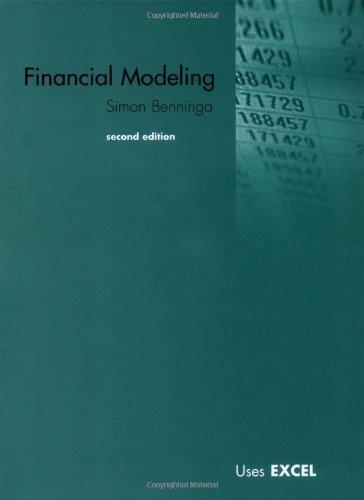Question
*** Could you please double check this for me. Thanks *** Some Internet research may be required to answer this question, although it's not absolutely
*** Could you please double check this for me. Thanks ***
Some Internet research may be required to answer this question, although it's not absolutely necessary.
What could you do to protect your bond portfolio against the following kinds of risk?
A. Risk of an increasing interest rate
Floating rate bonds - A floating-rate bond has a variable rate which resets periodically.The advantage of floating-rate bonds, compared to traditional bonds, is that interest rate risk is removed from the equation.
Short-term bonds - Short-term bonds don't offer the same yields as their longer-term counterparts, but they also provide more safety when rates start going up.Although even short-term issues can be impacted by rising rates, the impact is much more reduced than it is with longer-term bonds.As a result, an allocation to short-term debt can help reduce the impact that rising rates can have on your overall portfolio
B. Risk of inflation increasing
First is the stock market.Rising prices tend to be good news for equities.For fixed-income investors seeking an income stream that keeps pace with rising prices, treasury inflation-protected securities (TIPS) are a common and often preferred choice.These government-issued bonds are guaranteed that their par value will rise with inflation, as measured by the Consumer Price Index, while their interest rate will remain fixed.
C. Risk of volatility in the markets
Hedging - Can be considered an insurance policy.Assume that you own Bank of America stock and it is now in a market decline.One way to hedge is to purchase an option, with a strike price below where you purchased the stock.In doing this you won't lose money on any move below your strike price.
Stick with the Index - EMH is a theory that states that it's impossible to beat the overall market.This means that individual stock picking will not yield better results over the long term, so investing in an index fund is the statistical best way to make money, especially in times of extreme volatility.Stocks do not act rationally, so consider staying with the index.
The Bottom Line - Professional investors know that often the best action is the lack of action. Don't respond to the markets; position yourself with a long-term portfolio that can set you up for any type of market.Honestly, this is probably one of the best and most reliable pieces of advice to anyone currently in or entering the market.
Step by Step Solution
There are 3 Steps involved in it
Step: 1

Get Instant Access to Expert-Tailored Solutions
See step-by-step solutions with expert insights and AI powered tools for academic success
Step: 2

Step: 3

Ace Your Homework with AI
Get the answers you need in no time with our AI-driven, step-by-step assistance
Get Started


